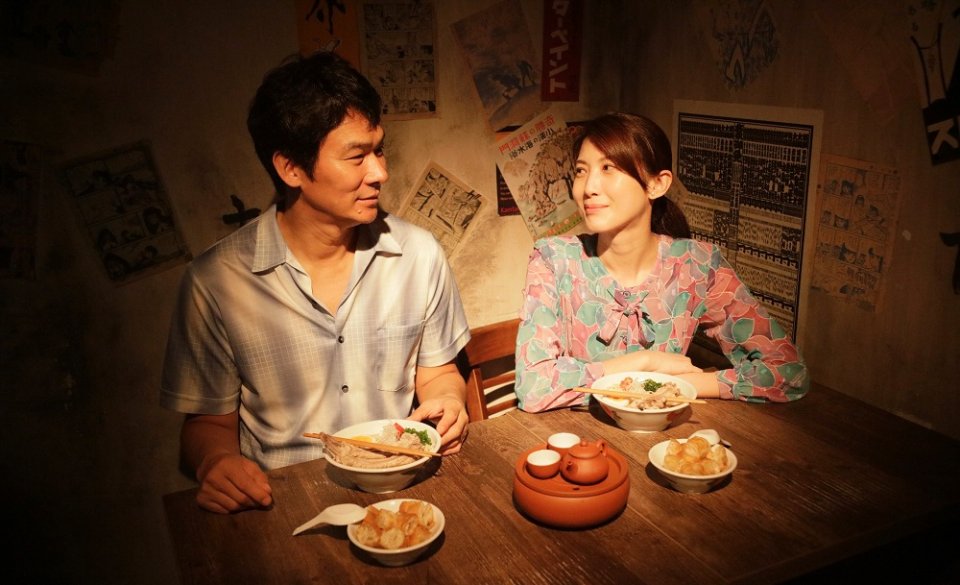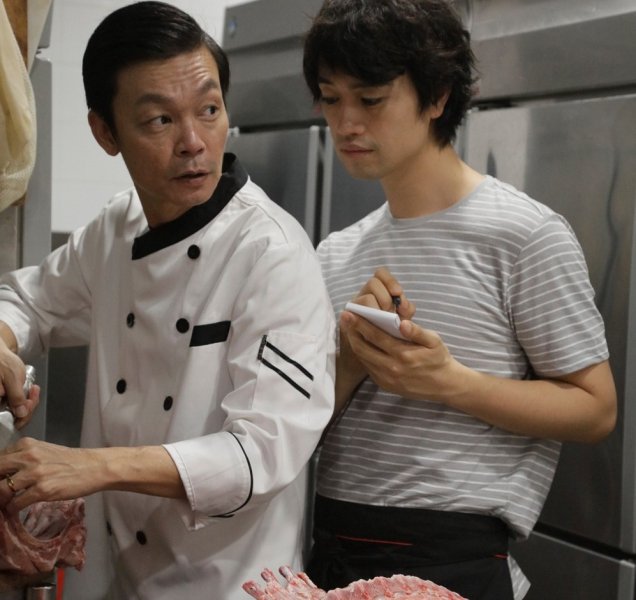#SGWatch4U is our weekly screen review column where we tackle anything from film to TV/Netflix.
Pro tip: don’t go watching Ramen Teh on an empty stomach. Local filmmaker Eric Khoo’s latest feature film navigates the complicated family drama of a Singaporean-Japanese ramen chef, through the lens of our beloved local cuisines. It’s a beautiful ode to Singapore’s eating culture that will leave you salivating throughout the nippy 90min run time—and which just barely saves the film’s questionable casting choices and weak narrative.
The story begins with Masato (Japanese pop star Takumi Saito), a young ramen chef working alongside his father and uncle in a family-run ramen joint in Takasaki, Japan. The workday is filled with a stream of customers we get to appreciate through gorgeous close-ups of ramen noodles, runny eggs and steaming broths. Once the restaurant is down to their last patron, Masato’s father Kazuo (Tsuyoshi Ihara) removes his apron and without so much as a word to his son, leaves.
Having set up the strained father-son relationship trope, the film moves quickly to hit its next plot points: emotionally distant father dies, newly orphaned son rifles through old memorabilia belonging to his parents (surprise surprise, Jeanette Aw takes the form of his passed Singaporean mother Mei Lian); said son decides on a whim to head to Singapore, to connect the dots to the side of his family he never knew.

Tsuyoshi Ihara and Jeanette Aw make an unconvincing couple.
Up to this point, much of the film is quiet, somber, and characterized by peaceful tableaus of the Japanese landscape. The realization that Masato’s story only starts proper when he arrives in Singapore comes as a shock to no one—though it is quite jarring to see our country through the eyes of a tourist, filtered again through the literal lens of a local.
With the help of a pen pal, Japanese food blogger Miki (Seiko Matsuda), Masato navigates the city trying chicken rice and hunting down monuments seen in photographs of his parents in their youth. How he as a tourist finds obscure places like the Seletar Rocket Tower is beyond us, but Khoo excels in translating that same otherworldly peace of his Japan shots to Singapore.
The funny thing is, there are many elements that Singaporean audiences will appreciate—the familiar food shots, colloquial references, and even famous faces—but these also work against the film. Hotshot Japanese chef and local “ramen king” Keisuke Takeda makes a guest appearance as himself—but rather than inspire awe in the audience, his appearance probably does more to remind Singaporeans of the times they queued for hours outside one of his 13 dining establishments.
And then there’s Jeanette Aw, and Masato’s maternal uncle, bak kut teh seller Ah Wee, played by none other than Mark Lee. As much as we hate to admit it, many of our local actors have been type-casted for certain roles in their acting careers, and the casting in Ramen Teh doesn’t care to break those stereotypes. Aw gets her screen time through multiple flashbacks to the ‘80s, where she plays the sweet, docile girl-next-door in period costume; if that doesn’t already sound familiar, Khoo admitted in a post-screening dialogue that he’s had his eye on collaborating with her since The Little Nyonya, but didn’t have the right film in the works at the time.
It’s Mark Lee’s Ah Wee, however, who ends up creating the biggest disturbance in the film. Make no mistake, we’re huge fans of Lee and his ability to be the life of the party in any show. But he stands out starkly against Khoo’s carefully set up movie, as a Jack Neo-endorsed caricature in a sensitive tribute to old-world Singapore. The dynamic between uncle and nephew is also genuinely weird—one spouting Singlish and cracking peanuts over a glass table; the other delicately stuttering the few words of English he knows. Khoo called it an intentional “duck-and-chicken scenario” created for flavor; it certainly works in being funny at times, but takes away from any potentially heartwarming scenes.

The duck and chicken master pork.
You’ve heard the adage about too many cooks in a kitchen; similarly too many disparate elements (and actors) jostling for space can make a film cluttered. Other supporting characters are introduced along the way, but they stay on the sidelines contributing feebly to plot development. Masato’s journey is a familiar one of reconciliation and family, yet even till the end he struggles to display real warmth for any of the family members he reconnects with.
Food is always an easy way to get to an audience. Eating is an intimate affair, quadrupled in a country whose citizens are often (lightly) mocked for taking their food too seriously. Khoo does exceptionally well in his portrayals of the local hawker and wet market scenes, painting everyday comfort food in a hazy, moving new light. But food porn alone cannot drive a movie, and once past the beautifully framed shots of bak kut teh, one can’t help but focus on the lack of a strong narrative.
At one point, Seiko Matsuda’s Miki compares Masato to the dish of his expertise. “You’re just like ramen,” she coos tenderly. “A mix of the best parts of Chinese and Japanese culture.”
If you hadn’t already figured, the film takes its name from playfully marrying ramen and bak kut teh—just one of Ramen Teh’s many cringe-worthy attempts to make explicit the coming together of cultures in one space. The end result is much like its protagonist—pretty to look at, sweet even; but a little too muddled to genuinely love.
Ramen Teh opens in Golden Village cinemas Mar 29.





